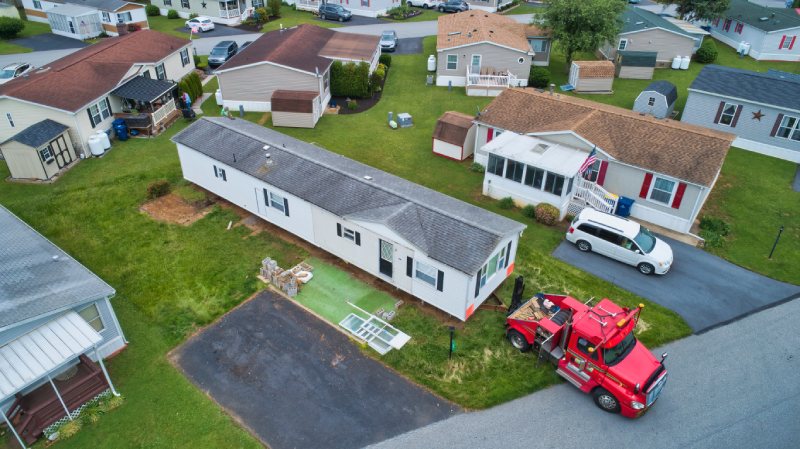At Banyan Mobile Home Removal we try to make moving a mobile home as easy as possible, but there are laws that need to be followed that could add some complexity. The good news is that we deal with this every day, so we can help walk you through them.
While most of the laws apply to all states, there are some states with a few specific laws out of the ordinary. We’re going to look at all of them here.
Law #1. You’ll Need a Moving Permit
Every time you move a mobile home you need a moving permit. These aren’t hard to get, although there are two main requirements for getting one. If you meet both these requirements–getting both of these certificates–then you shouldn’t have any trouble getting a moving permit. These permits, as with all government bureaucracy, can take some time to receive, so getting this step out of the way quickly is important.
Tax Certificate
In order to get a moving permit you need to have a certificate from the county proving that you have paid all of the property taxes on the mobile home that you’re moving. This can be acquired through the county treasurer.
Title Certificate
In most cases you will also need the title to the property or a copy of the title. If you don’t have the title, and it’s required, you can make an application for a certificate of title through the state DMV.
Law #2: You Need a Certified Mover
Here things are easy, because this law is simply stating that you can’t move the mobile home on your own. You need a professional mover to haul the mobile home away. And that’s exactly what Banyan Mobile Home Removal helps with: professional mobile home movers. So no need to worry about this law–we’ve got it covered – contact us today.
Law #3: The Mobile Home Must Meet Code
You may very well want to remove a dilapidated and crumbling mobile home from your property, but moving a home like that without reinforcing first can be a danger on the roads: pieces of the mobile home could come off and impede other motor vehicles. These homes often need temporary bracing or other temporary measures to make sure they are road-worthy.
What this means in practice is that the mobile home has to be up to HUD codes. Some areas have stricter laws on the codes. The best thing to do is to send us photos for review. We often review and respond within the same day. If you have any questions about getting your mobile home up to code so it can be removed, you can also call us.
State-Specific Laws for Moving a Mobile Home
Georgia Laws on Moving Mobile Homes
Good news! In Georgia, there are no specific laws that are more demanding than the laws that we’ve outlined above. The main requirement in Georgia is to make sure that it is moved by certified movers in a vehicle made for heavy loads, and that the driver has a commercial driver’s license (CDL). And, because you’re moving with Banyan as your moving company, we’ve got that covered.
Laws on Moving a Mobile Home in Missouri
The only additional laws that apply to moving a mobile home in Missouri are in relation to the size of the mobile home. If the home is more than 12’4” wide or more than 150’ long you will need to have an oversize permit for the removal of the home.
Laws on Moving a Mobile Home in Florida
Florida mobile home relocation states that a mobile home that is more than three years old will need to be pre-inspected for building codes before the permit to move can be issued. However, if a mobile home is older than 1976 it may not be moved unless it is a forced move.
Laws on Moving a Mobile Home in Alabama
In Alabama, the same rules mentioned above must be followed, but if you are going to move the mobile home on a highway you need to have a move permit from the office of the License Commissioner. This can only be obtained through the Michael Square office of the Mobile County License Commission, in Mobile, AL.
Laws on Moving a Mobile Home in KY
Kentucky laws regarding moving manufactured homes require that the home and truck together cannot have a combined length of more than 120’. The home itself cannot be more than 90’. It cannot be more than 16 feet wide, and 13’6” in height. Fortunately, very few mobile homes were ever manufactured greater than this size.


